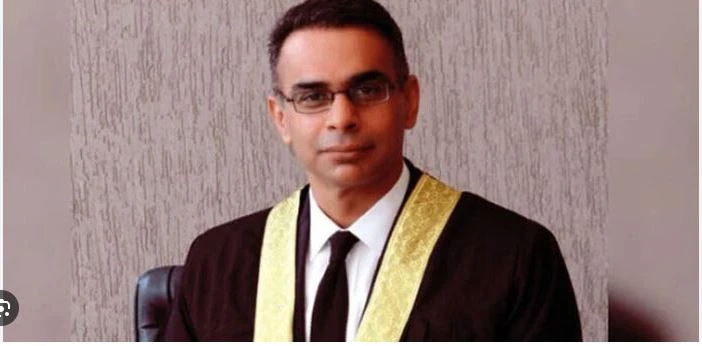Giving access to citizens' data by telecom companies to others unconstitutional: IHC’s Justice Baber Sattar

Stay tuned with 24 News HD Android App

Islamabad High Court’s Justice Baber Sattar has issued 29 pages of detailed judgment in the Audio Leaks Case, reported 24NewsHD TV channel.
The court said that the surveillance and call recording system of citizens was not legal and that telecom companies should protect the surveillance system.
The court made it clear that giving access of citizens' data by Telecom companies to others was unconstitutional as the federal government and PTA have told the court that permission has not been given to any agency for surveillance.
Justice Baber Sattar also issued a contempt of court notice to the PTA chairman and members for not sharing the truth with the court regarding the Lawful Intercept Management System.
IHC judge allowed telecom companies to share CDR, the live location of the accused with police. The court further said the Telecom Ministry can share CDR, share live location details as per SOPs of the Ministry of Home Affairs.
The court further ordered that the details of correspondence between telecom operators and the PTA should be submitted in the court in a sealed envelope by the PTA. Telecom companies should also submit a report on system installation with PTA.
When the Additional Attorney General told the court that he wanted to show some documents to the court in chambers, the court rejected the request and ordered that the federal government submit documents to the court in sealed envelopes.
IHC judge expected that the Prime Minister would ask for reports from secret agencies and place the matter before the Cabinet. Islamabad High Court further questioned from the government to tell the court who is responsible for installing Full Interception Management System? And who is in charge of the Lawful Interception Management System? And who is responsible for violating the privacy of citizens?
The court said the federal government must tell in six weeks who is responsible for the data leak on social media, and access to citizens' data.
IHC judge said there is a mechanism of audio recording surveillance of Prime Ministers, political leaders, judges, their families, and businessmen.
After the audio recording, first the detail is shared on certain social accounts, then on to the mainstream media, the court observed. The surveillance has access to four million mobile users' calls and SMS at a time and the claim that mobile companies have given 2 percent access of citizens' data to the surveillance companies was not legally correct, the court said. Justice Babar Sattar issued a 29-page detailed order in Bushra Bibi's audio leak case.
Reporter: Ehtshan Kiyani
